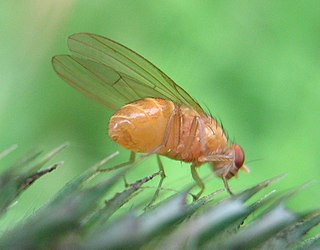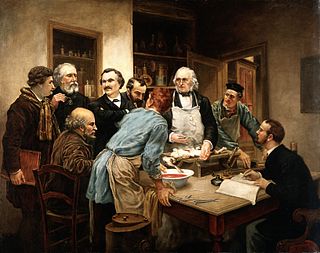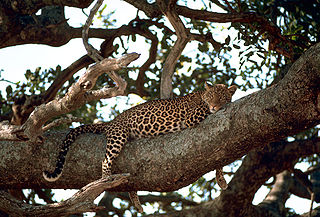
Biology – The natural science that studies life. Areas of focus include structure, function, growth, origin, evolution, distribution, and taxonomy.

Physiology is the scientific study of functions and mechanisms in a living system. As a subdiscipline of biology, physiology focuses on how organisms, organ systems, individual organs, cells, and biomolecules carry out chemical and physical functions in a living system. According to the classes of organisms, the field can be divided into medical physiology, animal physiology, plant physiology, cell physiology, and comparative physiology.

Biological anthropology, also known as physical anthropology, is a scientific discipline concerned with the biological and behavioral aspects of human beings, their extinct hominin ancestors, and related non-human primates, particularly from an evolutionary perspective. This subfield of anthropology systematically studies human beings from a biological perspective.
Zoology is the scientific study of animals. Its studies include the structure, embryology, classification, habits, and distribution of all animals, both living and extinct, and how they interact with their ecosystems. Zoology is one of the primary branches of biology. The term is derived from Ancient Greek ζῷον, zōion ('animal'), and λόγος, logos.
The history of zoology before Charles Darwin's 1859 theory of evolution traces the organized study of the animal kingdom from ancient to modern times. Although the concept of zoology as a single coherent field arose much later, systematic study of zoology is seen in the works of Aristotle and Galen in the ancient Greco-Roman world. This work was developed in the Middle Ages by Islamic medicine and scholarship, and in turn their work was extended by European scholars such as Albertus Magnus.
Professor David Bruce Weishampel is an American palaeontologist in the Center for Functional Anatomy and Evolution at Johns Hopkins University School of Medicine. Weishampel received his Ph.D. in Geology from the University of Pennsylvania in 1981. His research focuses include dinosaur systematics, European dinosaurs of the Late Cretaceous, jaw mechanics and herbivory, cladistics and heterochrony and the history of evolutionary biology. Weishampel's best known published work is The Dinosauria University of California Press; 2nd edition. He consulted for Jurassic Park and is a good friend of Steven Spielberg. He has received an Academy Scientific and Technical Award.
Marsupium, pl. marsupia; meaning pouch or purse in Latin, encompasses a diverse array of specialized anatomical structures found in various organisms across different taxonomic groups, predominantly in marsupials. Analogous structures are also observed in lower vertebrates and some invertebrates. This article provides an overview of marsupia across different taxa, highlighting their evolutionary significance, ecological roles, and physiological functions.

Phenotypic plasticity refers to some of the changes in an organism's behavior, morphology and physiology in response to a unique environment. Fundamental to the way in which organisms cope with environmental variation, phenotypic plasticity encompasses all types of environmentally induced changes that may or may not be permanent throughout an individual's lifespan.

Charles Otis Whitman was an American zoologist, who was influential to the founding of classical ethology. A dedicated educator who preferred to teach a few research students at a time, he made major contributions in the areas of evolution and embryology of worms, comparative anatomy, heredity, and animal behaviour. He was known as the "Father of Zoology" in Japan.
Comparative physiology is a subdiscipline of physiology that studies and exploits the diversity of functional characteristics of various kinds of organisms. It is closely related to evolutionary physiology and environmental physiology. Many universities offer undergraduate courses that cover comparative aspects of animal physiology. According to Clifford Ladd Prosser, "Comparative Physiology is not so much a defined discipline as a viewpoint, a philosophy."

Evolutionary physiology is the study of the biological evolution of physiological structures and processes; that is, the manner in which the functional characteristics of individuals in a population of organisms have responded to natural selection across multiple generations during the history of the population. It is a sub-discipline of both physiology and evolutionary biology. Practitioners in the field come from a variety of backgrounds, including physiology, evolutionary biology, ecology, and genetics.
The following outline is provided as an overview of and topical guide to zoology:

Acta Zoologica is a peer-reviewed scientific journal published by Wiley-Blackwell on behalf of the Royal Swedish Academy of Sciences and the Royal Danish Academy of Sciences and Letters. It is one of the world's leading zoological journals and focuses on animal development, structure, and function, including physiological organization. It primarily publishes original research papers, but occasionally also publishes review articles.

Arboreal locomotion is the locomotion of animals in trees. In habitats in which trees are present, animals have evolved to move in them. Some animals may scale trees only occasionally, but others are exclusively arboreal. The habitats pose numerous mechanical challenges to animals moving through them and lead to a variety of anatomical, behavioral and ecological consequences as well as variations throughout different species. Furthermore, many of these same principles may be applied to climbing without trees, such as on rock piles or mountains.
Theodore Garland Jr. is a biologist specializing in evolutionary physiology at the University of California, Riverside.
Ecomorphology or ecological morphology is the study of the relationship between the ecological role of an individual and its morphological adaptations. The term "morphological" here is in the anatomical context. Both the morphology and ecology exhibited by an organism are directly or indirectly influenced by their environment, and ecomorphology aims to identify the differences. Current research places emphasis on linking morphology and ecological niche by measuring the performance of traits associated behaviours, and fitness outcomes of the relationships.
Duncan Irschick is an evolutionary ecologist and functional morphologist in the field of animal athletics, more specifically known as animal performance. He has worked on many kinds of animal species, including reptiles and amphibians, rodents, ungulates, spiders, and humans. He was a faculty member at Tulane University for five years (2001–2006) before joining the faculty at the University of Massachusetts at Amherst in 2006.
Ecoimmunology or Ecological Immunology is the study of the causes and consequences of variation in immunity. The field of ecoimmunology seeks to give an ultimate perspective for proximate mechanisms of immunology. This approach places immunology in evolutionary and ecological contexts across all levels of biological organization.
Elizabeth L. Brainerd is an American biologist who has contributed to our understanding of the evolution of breathing. and the biomechanics of vertebrates. She is one of the inventors of XROMM, a technique for making 3D movies of internal structure that combines CT scanning with biplanar x-ray movies. She is one of the authors of Great Transformations in Vertebrate Evolution.
Albert Farrell Bennett is an American zoologist, physiologist, evolutionary biologist, author, and academic. He is Dean Emeritus of the School of Biological Sciences at University of California, Irvine.






